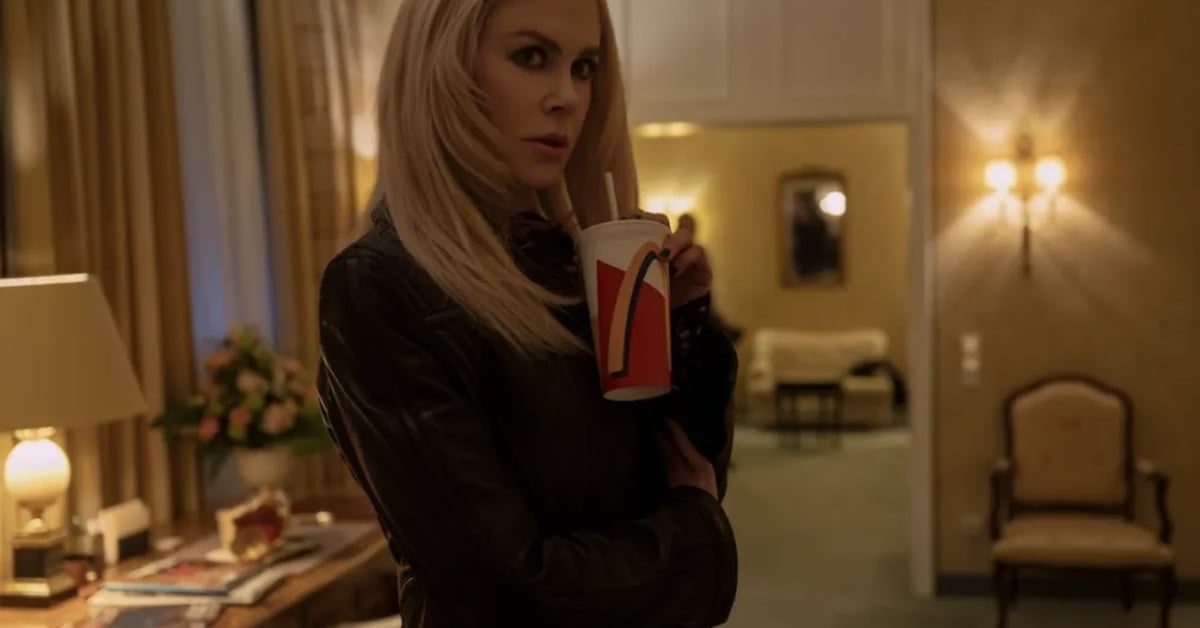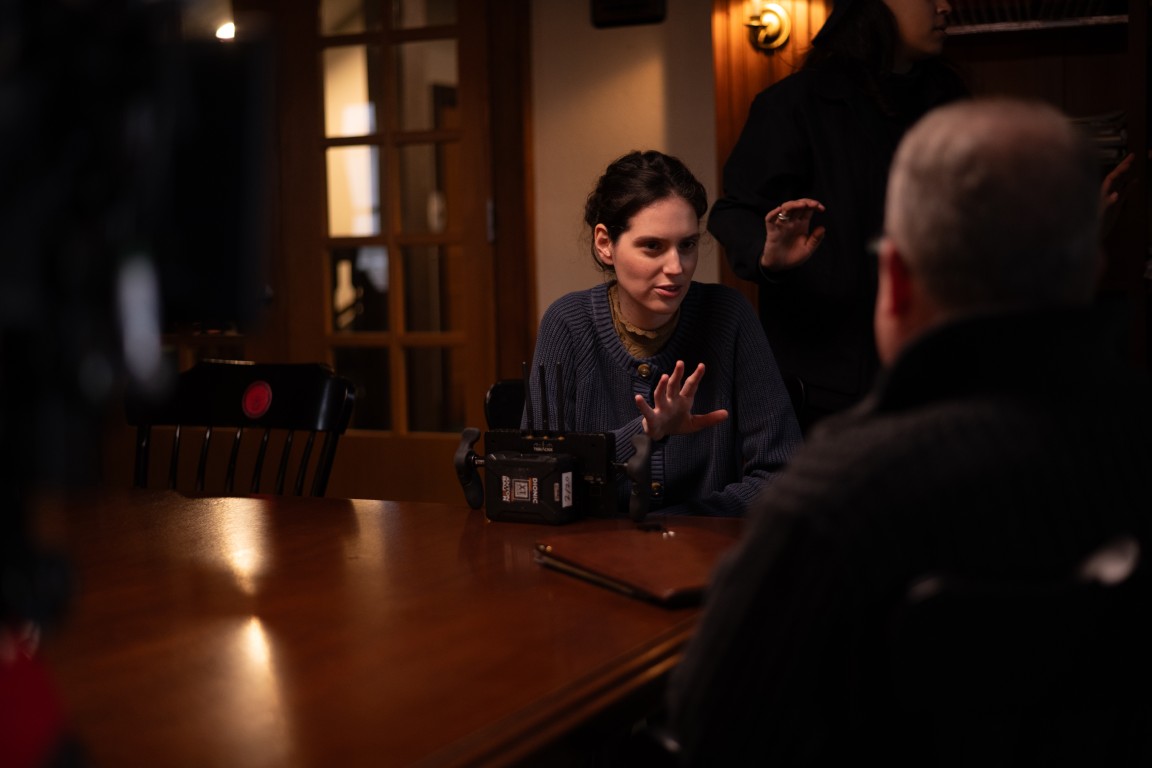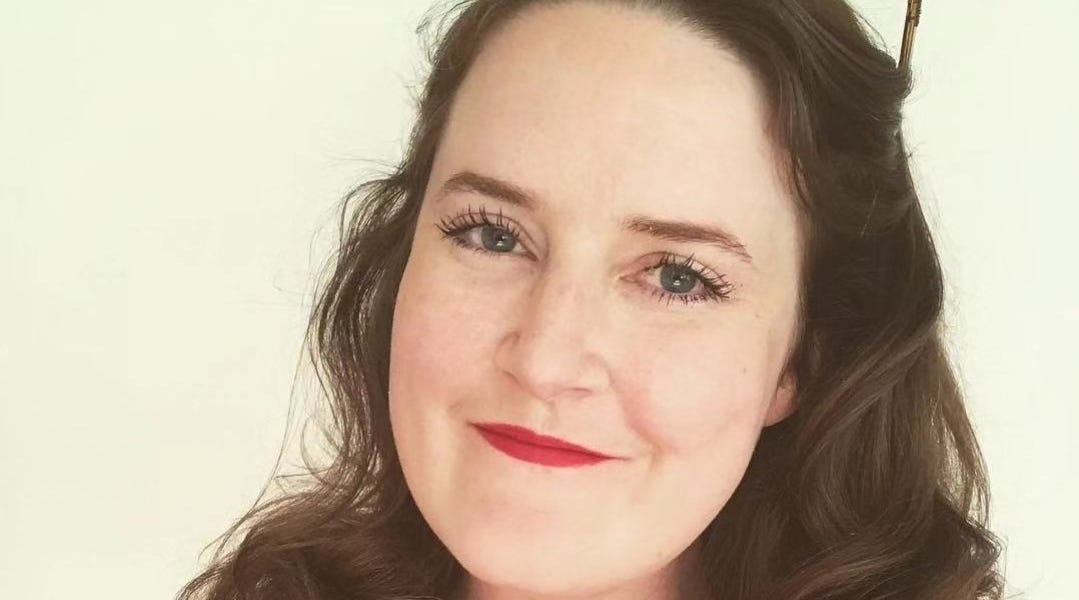'Sorry, Baby' Filmmaker Eva Victor Takes Viewers On A Journey of Healing | ELLE Canada Magazine | Beauty, Fashion and Lifestyle Trends & Celebrity News
If there’s one thing you should know about new dramedy Sorry, Baby before seeing it, it’s that main character Agnes is sexually assaulted by her professor when she was a grad student. But that’s not what the acclaimed movie—which starts playing in Toronto on July 4 before expanding to theatres across the country throughout the month—is about. Not really. Told in chapters, the film is an intimate and moving chronicle of how Agnes learns to process, heal from and live with the trauma she’s endured.
“There are so many films that are really good at depicting sexual violence, and some that aren’t too, but I don’t think that I could find the film that I was looking for at a certain time in my life—one that held my hand through it in the way I needed,” Eva Victor, who wrote and directed the movie and also stars as Agnes, tells ELLE Canada. “I wanted to make a movie that didn’t feel hard to sit through and that prioritized audience comfort and safety over shock value. I wanted to make a film about the time after something traumatic happens, not the trauma itself.”
There are many ways in which Victor does so, but one of the most powerful ways is how they depict “the Bad Thing,” as Agnes and her best friend, Lydie (Naomi Ackie) come to refer to the assault—or, rather, doesn’t depict it. Instead, partway through the film, we watch as Agnes steps into her professor’s house, but the camera stays outside of it. Victor lets their lens stay fixed on the front door, slightly backing away as daylight shifts and fades, managing to create unease and tension. Eventually, Agnes walks out and it’s immediately clear something is wrong. We follow her back to her car, back to her house, and only find out what has happened when Agnes slowly and carefully tries to describe it to Lydie.
“Staying outside of the house is probably more of a way to stay with Agnes than being inside it—her body walks into the house, but I don’t think her spirit goes with her,” Victor says of their debut film, which is produced by Barry Jenkins. “And I didn’t want to show what happened for a million reasons—it was never on the table. I made the whole film for that moment. I wanted us to feel this impending doom, but to not be able to make sense of it until she’s ready to tell us. In the real world, we’re never inside the house; we hear what happens inside of it. I wanted the film to just believe her.”
 A24/VVS Films
A24/VVS Films
Victor also doesn’t present Agnes’ healing journey as linear. Sorry, Baby actually starts years after “the Bad Thing” has occurred, and jumps around in time through different moments in the character’s life in the aftermath. Audiences meet Agnes as she still lives in the same college town and now works at the school she was a student at—and even occupies the office of her former professor/perpetrator—as if she’s arrested in time. The space between Agnes and her peers is only emphasized when Lydie arrives and tells her that she’s pregnant.
This characterization and dynamic was important for Victor, who you may recognize from their online comedy videos and role on Showtime’s hit drama Billions, to explore for both Agnes and Lydie. “Agnes’ timeline is so slow; she’s moving at a glacial pace because she has to. It’s how she’s surviving and gets through the day,” Victor says. Whereas Agnes stays almost stuck to heal, Lydie stays steadfast in her unconditional and warm support of her friend, but her life continues to blossom at the same time. She explores her queerness, meets her partner and starts a family without pushing Agnes to a point she’s not ready for. Lydie is a character who stands as her own, not one who’s also defined by Agnes’ trauma—which, Victor adds, is good for both of them.
“The biggest gift Lydie gives to Agnes and their relationship is prioritizing her own needs, leaving to seek that out and not feeling like she has to be stuck too,” Victor says. “For the long-term love in their relationship, Lydie has to do what she has to do and Agnes has to do what she has to do. That balance is the only way for there to not be resentment. During this time, Agnes is really thinking about herself, but she starts to see a glimmer outside of herself [because of Lydie’s baby].”
While healing is at the core of Sorry, Baby, Victor would never presume that viewers feel one set way after watching the movie. “It’s such a sensitive film about something so personal to so many people, so I feel like the idea of telling someone what to leave with is counterproductive,” they say. “In my experience with films, you see them and they either move through you and out or they lodge themselves into you, and I think it’s everyone’s right to have [Sorry, Baby] move through them or lodge itself. Making the film has made me feel less alone, and I hope it can make someone else feel that. I think the real joy of seeing a film in theatres is the privacy of the darkness—you’re all facing the same way so no one has to see each other’s faces, but you’re also in a community. You get to feel something with people but not have to talk to them, and even just that experience sounds like enough for me.”
Join our mailing list for the latest and biggest in fashion trends, beauty, culture and celebrity.








